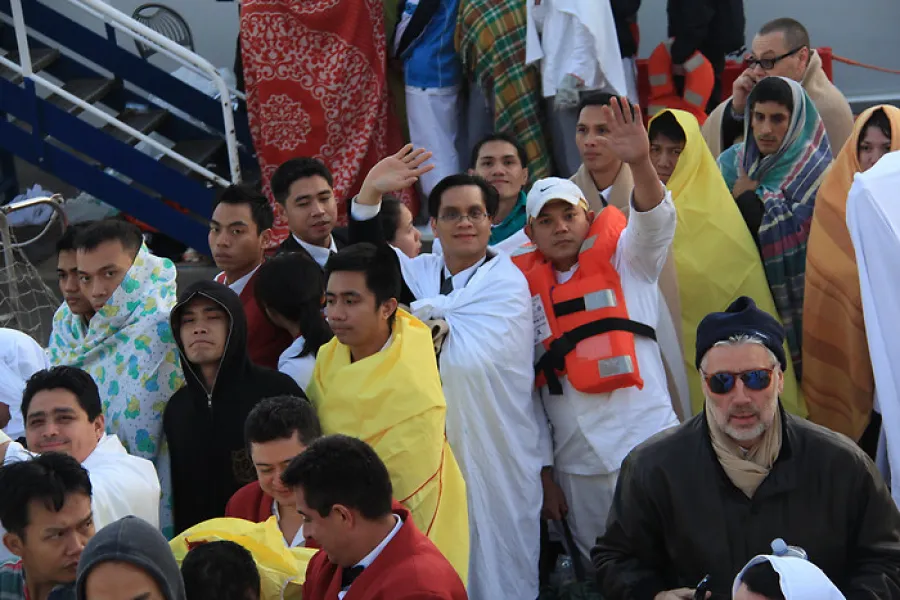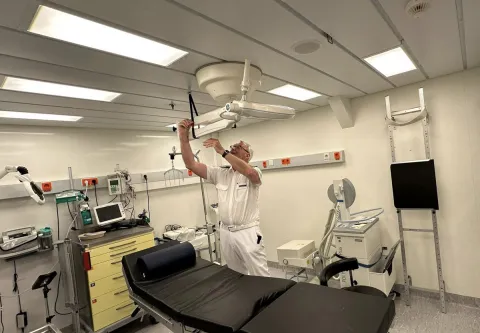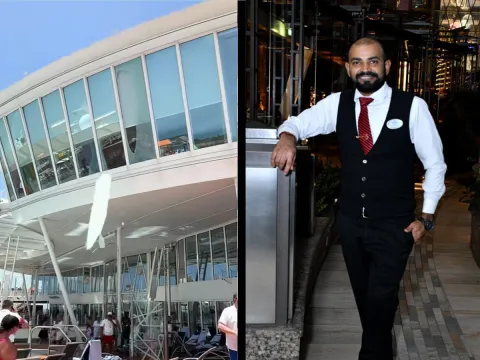
The Truth About Cruise Lines
It’s difficult not to notice there have been an increasing number of cruise ship accidents as of late. While injuries and crimes on the high seas are not uncommon, it appears as though 2013 has been off to an exceptionally rough start and is on its way to quickly becoming the worst year for maritime incidents in history.
Between the Carnival Triumph cruise ship fire, which led to a loss of power and deplorable shipboard conditions, to a slew of other ships experiencing mechanical failure, passenger and crew member deaths, cruise ship rapes, murders, robberies, and illnesses, it appears as though the cruise industry is deteriorating. Maritime safety has been questioned time and time again, but given the number of escalating crimes and injuries onboard cruise ships, it appears as though the need for improved safety practices is at an all-time high.
Though many factors can influence the likelihood for accidents and crimes on the high seas, Miami-based maritime lawyers Lipcon, Margulies, Alsina & Winkleman, P.A., believe that the increase in cruise ship mishaps is tied to the deteriorating crew conditions aboard ships and are fighting to bring to light the need for better crew protection and care.
How Cruise Lines Avoid Responsibility for Maritime Accidents
Cruise lines have often avoided taking responsibility for accidents and crimes on their vessels, and they are able to do so mainly because they register their ships in foreign ports to avoid being subjected to strict U.S. maritime laws, corporate taxes and the liability of a victim’s injuries or suffering. By turning over accident and crime reports to foreign governments that are not usually keen on investigating a case as thoroughly as it should be or disclosing information with the U.S. and other governments, cruise lines may evade public embarrassment, responsibility and a marred reputation.
But in addition to flying foreign flags, the cruise industry often avoids responsibility for negligent actions by placing the blame on crew members. A perfect example of this is the Costa Concordia capsizing accident, which claimed the lives of 32 people. A lot of blame has been placed on the vessel’s captain, Francesco Schettino, and crew members who failed to carry out emergency evacuation protocols effectively, but what about the ultimate responsibility of the actual cruise line, Costa?
Costa Crociere, the owner of Costa Cruises, was issued a 1 million Euro administrative fine for the many maritime safety violations that were committed by the Concordia crew leading up to the tragic accident as well as those committed during the evacuation. If the crew members on the Concordia were unable to carry out proper evacuation protocols and if the captain was able to change the course of the ship at the last possible minute to cause the vessel to crash, should that be the sole responsibility of the crew? Should Costa Cruises not be faulted for their faulty policies and procedures, enforcement, lack of crew member training or disregard for onboard safety?
One would think yes, but, as happens all too often in the cruise industry, there is loophole in Costa’s advantage. Even though the company was fined, once the settlement is paid, the cruise line will not be prosecuted for the Concordia cruise ship accident. Instead, it will actually be taking part in the hearing against Schettino and others who were indicted for their role in the incident, as a victim that lost its ship, not as a catalyst in the tragedy.
As appalling as that sounds, it’s nothing out of the ordinary for the cruise line industry. Placing the blame on crew members is the easy way out for liners, so naturally, they are going to take it. And while there are times when a ship’s crew is responsible for an incident, there are times when it is the crew itself that has been victimized. And as likely as a cruise company is to cover up an incident involving a passenger, they work even harder to conceal incidents involving crew members and avoid liability at all costs.
How can they do so? By providing subpar working conditions for crew and allowing arbitration clauses to make it possible.
The Role of Crew Member Mistreatment in Cruise Ship Accidents
Cruise ship crew members are considered seafarers, and as such, are entitled to certain benefits including wages, medical care, food and shelter. Unfortunately, these rights are often disregarded. Crews are often forced to work for a fraction of the pay they deserve, under squalid shipboard conditions and for hours on end without being allowed breaks. Because their right to a safe working environment is being compromised, Lipcon’s maritime attorneys believe recent diminishing maritime safety is a direct result.
When crew members are mistreated, either by withholding adequate medical care or by being forced to work long shifts, they can cause accidents, compromising the safety of everyone onboard. But when crew members try to fight back, they are forced to go into foreign arbitration, are not compensated the way they should be, and even more goes wrong.
If crew members are being mistreated, it is no wonder they are unable to perform their tasks successfully, thus leading to accidents. No crew member who is overworked and tired, barely able to stand on two feet, is capable of responding to an emergency quickly and with a clear head.
And so, accidents occur and cruise lines place the blame on their workers, despite the fact that if they would have provided a safe environment and protection for their crew, the incidents may never have occurred to begin with.
How Arbitration Allows for Cruise Line Negligence and Crew Mistreatment
The struggle between the victims of cruise line negligence and the industry itself has been one LMA&W’s maritime attorneys have long been battling. The ability of cruise companies to avoid taking responsibility for the pain and suffering they have caused, especially to crew members, is both historical and chronic. Even though crew members are injured or denied their rights time and time again, they rarely obtain the justice they deserve because of the arbitration clauses in their contracts, which have been in place for roughly a decade.
These arbitration provisions take crew claims out of U.S. courts and into foreign arbitrations, where a seaman’s rights are not as thoroughly protected as they would be in the U.S. And because the arbitration clauses result in less liability for cruise lines, the industry has become more unabashed in its treatment of crew members, overworking crews to the point that a serious safety issue is created for both the crew and passengers.
Lipcon’s attorneys have voiced their concerns over how cruise lines are able to compromise maritime safety, writing to Sen. Jay Rockefeller (D-WV), who has also been vying for improved safety in the cruise industry, and discussing how the increasing number of accidents at sea are a bi-product of deteriorating crew conditions and the arbitration clauses that allow this.
The letter, which appears on the Wall Street Journal, explains how foreign arbitration clauses in crew member employment contracts require seamen to bring claims in foreign countries, subjecting them to whatever those countries’ laws may be. Because of this practice, hundreds of thousands of seafarers have been deprived of access to U.S. courts, despite the fact that most major cruise lines are headquartered in the U.S.
"Sadly, we have connected the dots between an obscure legal maneuver made by the cruise lines and the increase in shipboard accidents," said Jason Margulies, a cruise lawyer with the firm. "A few years ago, the cruise industry started placing foreign arbitration clauses in its crew contracts. While it may seem insignificant where disputes are resolved, we have drawn the conclusion that because worker's rights are no longer protected by U.S. courts, dangerous conditions are not being properly defended and ultimately the cruise passenger suffers."
By forcing its crew into foreign arbitrations, where seafarers may obtain only a fraction of the compensation they deserve for their mistreatment, the cycle of accidents continues, all the while the true perpetrators, the cruise lines themselves, avoid responsibility for their wrongdoings.
Protecting Seafarer Rights
Crew members who have been involved in an accident onboard a cruise ship or who have been subjected to subpar shipboard conditions should not have to suffer in silence. Lipcon, Margulies, Alsina & Winkleman, P.A. offer representation for seafarers whose rights have been violated and strive to obtain justice for crew members who have been wronged by their employing lines.
If you believe you have been subjected to mistreatment by your employing cruise line, contact Lipcon today to discuss your options in filing a case and ensuring your right to a safe working environment is protected.
About Lipcon, Margulies, Alsina & Winkleman, P.A.
Lipcon, Margulies, Alsina & Winkleman, P.A. is an award-winning Miami, FL law firm that focuses on maritime claims against cruise lines, cargo vessels and boat companies. Representation may be available for anyone who has suffered an injury, illness, crime, or the loss of a loved one. The attorneys at Lipcon consistently receive the "AV" Preeminent rating of 5.0 out of 5.0 from their peers for their exceptional level of ethics and professional ability in the field of maritime law and work diligently to protect victims’ rights.












